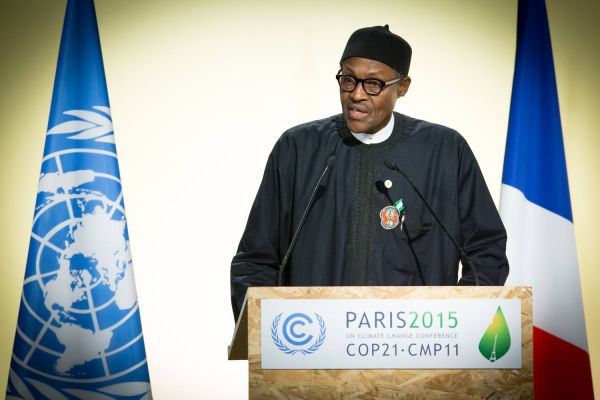
By Jide Shittu
When recently, the president of Nigeria, Gen. Muhammadu Buhari announced the reduction of his convoy, many welcomed the idea with gusto. This is with the intention to reduce the operational cost of the Federal government and save cost.
However, a salient nuance that is worth celebrating should be the fact that the singular act of the president will also go a long way in reducing our carbon footprint and hopefully if other public officers could follow this path, the environment will surely be grateful.
Ideality
The world as a whole heaved a sigh of relief and many shouted eureka as the world eventually agreed on that one thing that is needful in such a time as ours, #COP21.
It is of a truth that our earth is gradually heating up. Several occurrences over the years had been attributed to the uneasiness of nature and her approach of ensuring her comfortability though at the expense of several lives and valuables.
Over the years there have been several agendas to salvage the situation and a major climax was #COP21. Little wonder the world greeted the agreement with so much enthusiasm. Truly, it is no news that climate change is a global threat and all hands are on deck to combat it.
A peruse of the #COP21 agreement will reveal several key issues that trigger a call to action and also caters for most developed countries (MDCs) and the least developed countries (LDCs) and their specific needs. A highlight of the agreement is as follows:
‘(a) To hold the increase in the global average temperature to below 1.5°C above pre-industrial levels, taking into account the best available science, equity, sustainable development, the need to ensure food security and the availability of means of implementation, by ensuring deep reductions in global greenhouse gas [net] emissions;
(b) To increase their ability to adapt to the adverse impacts of climate change [and to effectively respond to the impacts of the implementation of response measures and to loss and damage];
(c) To pursue sustainable development in a manner that fosters climate resilience and low greenhouse gas emissions, and that does not threaten food production and distribution;
(d) To make finance flows consistent with a pathway towards low-emission and climate-resilient development, in the context of sustainable development priorities and efforts to eradicate poverty.
2. [This Agreement will be implemented on the basis of equity and in accordance with the principle of common but differentiated responsibilities and respective capabilities, in the light of different national circumstances and on the basis of respect for human rights.]’
It is no doubt the agreement is key and it will go a long way in curbing the issues hovering around climate change if properly implemented. However, to an average Nigerian on the street what is really the BIG DEAL?
Reality
Despite the enthusiasm of the world concerning this laudable achievement, major concerns are issues such as #transboundarymovements of gases, how a particular activity in a particular country could have an adverse effect in another country and the culprit in most cases is not traceable. Need not say more that there is a need to bridge the gaps between MDCs and LDCs, there must be a cooperative approach and not necessarily competitive.
There is no gainsaying the fact that a developing country such as Nigeria is marred with several environmental issues such as indiscriminate waste disposal, open air burning, gas flaring, emissions from generating sets, to mention but a few.
Innovations such as recycling, upcycling, greenbiz, green-homes, carpool are either strange or just gaining currency. Much work is to be carried out in respect to creation of awareness and sensitization, devising means for sound environmental sustainability, and ensuring proper implementation of environmental laws.
Knowing fully that Nigeria’s Ministry of Environment will be working round the clock, hopefully to ensure the full implementation of the nation’s Intended Nationally Determined Contributions (INDCs), several issues, however need to be addressed and the #COP21 agreement needs to be properly internalized and locallized to ensure its implementation with giant stride results.
We should all have it at the back of our minds that ‘the environment is not our heritage, but a loan from future generations’. So lets all hands be on deck to secure our Environment for Posterity sake!




















